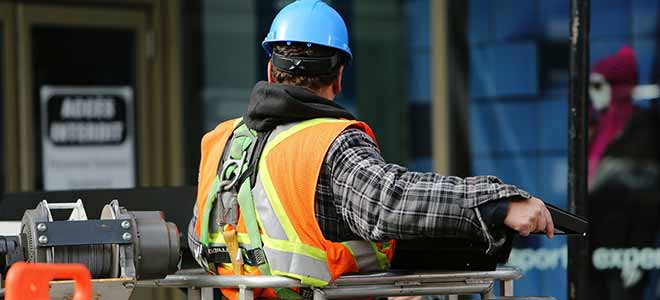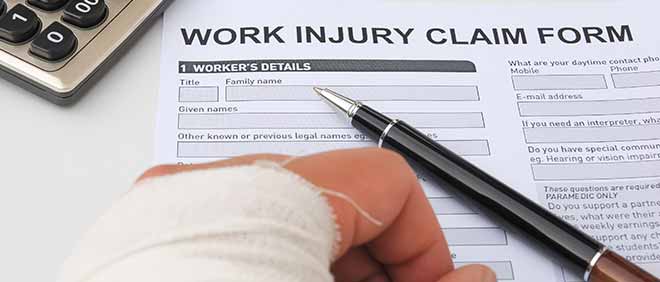
If you have been injured at work in Rhode Island, you may be entitled to collect workers’ compensation benefits for lost wages, medical bills and potentially a lump sum settlement, among other benefits. Our firm is working with experienced RI workers’ compensation lawyers. You will never have to pay legal fees out of your pocket. All legal fees are paid by the insurance company if you win your case.
What is Workers’ Compensation?
Workers’ compensation is an employee insurance program designed to provide benefits to employees who are injured at work, even if their employer is not at fault. Generally, your employer’s insurance company will be responsible to pay for any lost income, medical expenses and in some instances, a lump sum settlement. You may also be eligible for other benefits such as job retraining, money for permanent scarring and also for permanent loss of use of a body part. The system allows employees to receive benefits even though the injury may be either their own fault or no one’s fault.
What Should I do After Being Injured at Work in Rhode Island?

First, be sure to seek medical attention for any injuries, because your well-being is our first priority. Immediately after, report the work injury to your superior and ensure that it is properly documented. This is the initial notice to their insurance company as to your possible pending claim for workers’ compensation. Once you’ve reported the injury and received medical attention, we advise you to contact an experienced RI workers’ compensation lawyer to sort through your case and help you understand all of your legal rights. Read more.
Our Firms Best Rhode Island Workers’ Compensation Settlements:
- $500,000 Settlement: During the course of his employment, our client broke his leg making a delivery. Our firm remained jointly responsible with a workers’ compensation lawyer who got this very favorable outcome. Read More
- $450,000 Settlement: Our client was working on a construction site, when he fell from a scaffolding. He broke his pelvis, wrist, and ribs and suffered a dislocated shoulder, as well as, serious lacerations. Our firm maintained joint responsibility with another worker’s compensation lawyer, who was able to negotiate a lump sum. Read more
- $200,000 Settlement: Our client was taking measurements when he fell backwards and injured his back. d’Oliveira & Associates remained jointly responsible with a workers’ compensation lawyer, who lump-sum settled this case. Read More
Can I File a Personal Injury Suit in Addition to my Workers’ Compensation Claim?
In most cases, you will not be able to file a personal injury suit against an employer for an injury that happened at work. However, injuries at work can be caused by dangerous products or the negligence of third parties, so you may be able to file a personal injury claim against a third party. Read more.
What Benefits Can I Receive from a Workers’ Compensation Settlement?
The most common losses compensated for in workers’ compensation settlements are lost wages, medical bills, scarring, and vocational retraining, among other losses. Read more.
Are You Able To Get Weekly Benefits For Lost Wages?
Yes, there are three (3) types of disabilities that allow you to collect weekly benefits for lost wages – temporary total disability, partial disability, and permanent total disability. Read more.
What Injuries are Commonly Covered by Workers’ Compensation?

Pretty much any type of injury is covered under workers’ compensation as long as it happened within the “course of employment.” In other words, as long as the injury occurred while you were completing one of your job duties, it will most likely be covered. Read more.
Will I Need Vocational Rehabilitation?

Depending on your specific injury, you may need to go through vocational rehabilitation. Vocational rehabilitation is a form of therapy that helps those with functional, psychological, developmental, cognitive, emotional impairments, or health conditions return to work as soon as possible. Read more.
What If I Have Been Denied Workers’ Compensation?
You can still collect the compensation you are entitled to after your initial claim has been denied. An experienced Rhode Island workers’ compensation lawyer can help you through the appeals process and fight to get you the settlement you deserve. However, time is of the essence when it comes to appeals, so contacting a lawyer immediately is of great importance. Read more.
Why Contact Us?

If you or a loved one have been injured on the job, do not hesitate to contact a lawyer to help you get the compensation you deserve. We work with some of the most experienced workers’ compensation lawyers in Rhode Island. Additionally, we charge you absolutely no legal fees until you receive the settlement or award you are entitled to. For a free (no-obligation) case consultation, call us anytime at (800) 992-6878 or fill out an online contact form online.

